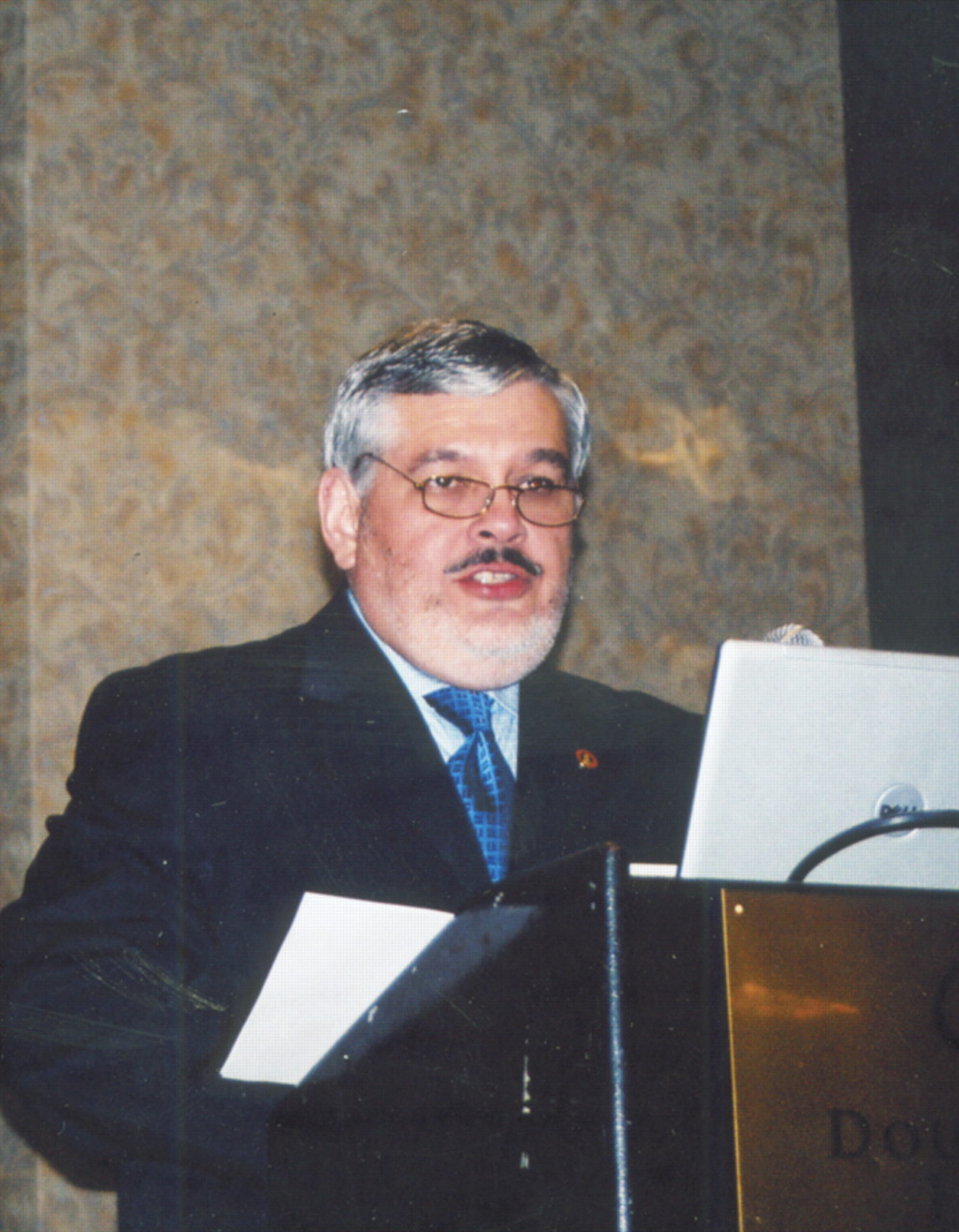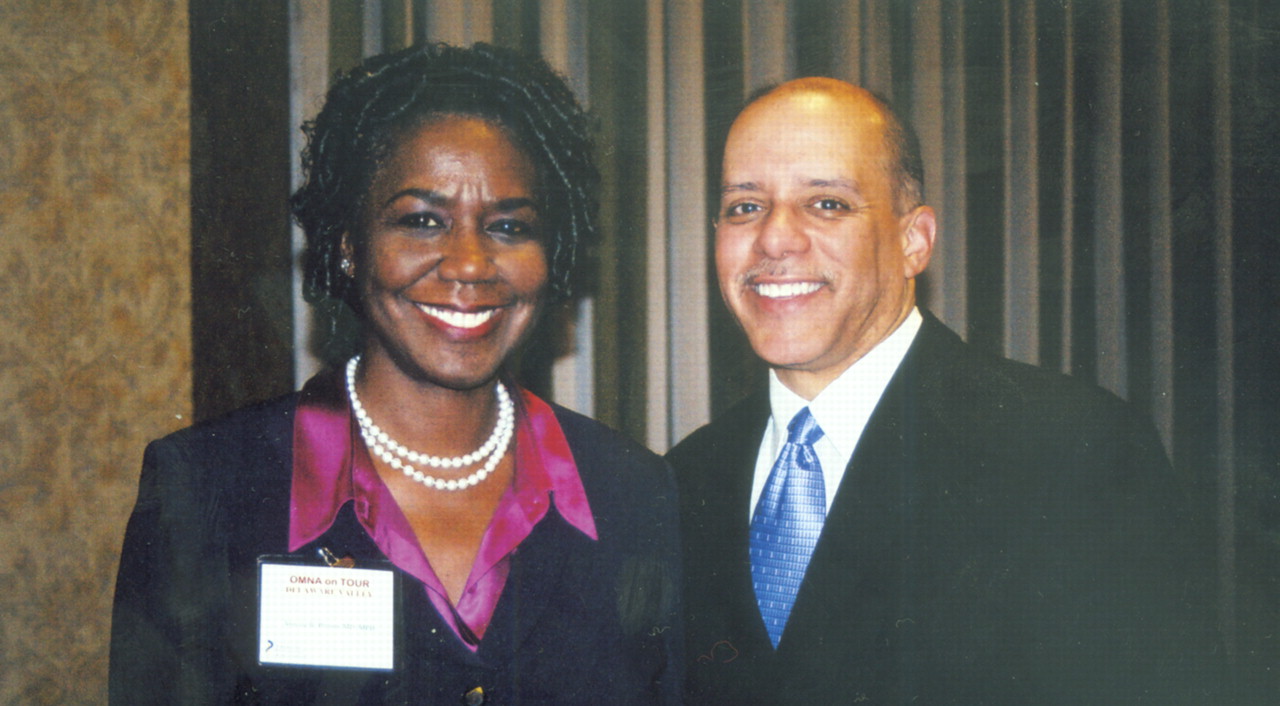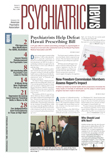Training and advocacy will help to resolve minority mental health disparities, which are rooted in shortsighted political decisions, a shortage of culturally diverse mental health providers, and a lack of education about cultural issues by clinicians, among other factors. But only so much can be done to reduce mental health disparities from behind a desk or even from a crowded conference table.
That is why APA's Office of Minority and National Affairs (OMNA) has taken its show on the road, so to speak.
APA's “OMNA on Tour” arrived in Philadelphia in March to convene local and national experts and explore the barriers to quality mental health care experienced by many racial and ethnic minorities; talk with local politicians, advocates, consumers, and mental health professionals about solutions to the problems; and showcase innovative community programs that have reduced disparities in care for minority populations.
The tour was launched in January 2005 at Howard University Hospital in Washington, D.C., and includes “the red states, the blue states, the woods and the'hoods, the ebony and ivory towers, engaging a range of audiences from teachers to preachers and people from the streets and corporate suites,” OMNA Director Annelle Primm, M.D., M.P.H., said at the Philadelphia meeting in introductory remarks.
Discussions at tour stops are “customized to the demographics, needs, cultures, and available resources in the area,” she added.
Speakers at the daylong meeting in Philadelphia first addressed the barriers to mental health care experienced by members of different racial and ethnic minority groups and then discussed strategies to improve mental health care for minorities.
Immigrants Endure Unique Stressors
Many Latinos, for instance, face trauma associated with immigration, according to information presented to the more than 100 attendees at the meeting.
Preimmigration stressors may include exposure to terrorism, war, and political persecution in Latin American countries, according to Andres Pumariega, M.D., who is chair of psychiatry at the Reading Hospital and Medical Center and a clinical professor of psychiatry at Temple University School of Medicine in Philadelphia.
Immigration often involves long and sometimes dangerous journeys to the United States and separation from immediate and extended family. Postimmigration stressors for children include multiple moves as parents attempt to find work and avoid possible deportation.
Latino youth often succumb to the pressure to acculturate to avoid marginalization, and when they do so, they may lose touch with “natural protective beliefs and values” such as a longstanding cultural taboo against suicide, Pumariega pointed out.
Conflicts may arise between Latino children who have acculturated and parents who do not speak English and hold on to traditional beliefs, he noted. Parent-child conflict, he noted, may increase the risk for various psychiatric disorders in youth.
Improving mental health services for Latinos means increasing access to treatment planning, case management, and linguistic support, Pumariega said.
There is also a lack of culturally and linguistically competent Asian-American mental health providers in many places, according to Pioquinto Voluntad, owner of Asian Pacific Management Consultants in Philadelphia.
Voluntad's company trains corporate leaders, hospital staff, and the people working for the court system about the health disparities and needs of Asians and others living in minority communities.
Those living in Asian communities require culturally competent providers who understand the traditions and beliefs of Chinese, Vietnamese, Japanese, Indonesian, and Cambodian patients, for instance. “Asians speak many languages, and often mental health providers can't communicate with us,” he noted.
As part of a task force appointed by former Philadelphia Mayor and current Pennsylvania Governor Ed Rendell, Voluntad helped to recruit culturally competent masters-level therapists to work with Asian-American patients. As part of that initiative, task force members partnered with educational institutions to offer scholarships to minorities and developed grant proposals to fund students' tuition.
War Takes Toll on Minorities
Voluntad said that mental health clinicians should ready themselves for an influx of refugees from Middle Eastern countries fleeing to the United States to escape terrorism and war.
War can also have devastating consequences on U.S. soliders, many of whom happen to be minorities, according to State Sen. Vincent J. Hughes (D-Phila.).
“Approximately 80 percent of soldiers fighting in Iraq and Afghanistan [who met criteria for a mental disorder] acknowledged having mental health problems, yet only 40 percent said they were interested in receiving help” for those problems, Hughes said.
Only 26 percent ended up receiving mental health services, he added.
“It appears that modern career soldiers are concerned about the stigma associated with mental health problems and the potential negative impact [that treatment] might have on their careers,” Hughes said.
In October 2004, Hughes helped organize a conference called “Breaking the Silence,” which sought to educate African Americans living in and around Philadelphia about mental health problems and the services available to them. More than 3,000 people attended the event. “We broke down barriers to mental health services and helped people to feel more comfortable with seeking help,” he said.
Hughes also emphasized the importance of training spiritual leaders in African-American communities about mental health issues. “We all have a responsibility to be proactive about mental health disparities in the African American community,” said Hughes. ▪


